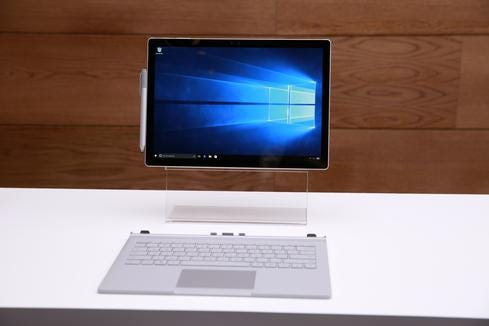Bill Gates Weighs In On Apple Vs. FBI Encryption BattleBill Gates Weighs In On Apple Vs. FBI Encryption Battle
Microsoft cofounder Bill Gates adds his opinion to the Apple vs. FBI debate. The government has demanded Apple grant access to the locked iPhone of a suspected terrorist.


9 Windows 10 Apps For A Productivity Edge
9 Windows 10 Apps For A Productivity Edge (Click image for larger view and slideshow.)
The debate between Apple and the FBI has sparked a transformative discussion about how far the government can reach in demanding access to information stored on consumer devices.
The FBI is trying to access information stored on the iPhone 5c of Syed Farook, one of two suspects killed by police after he and his wife carried out the Dec. 14 San Bernardino terrorist attacks. Apple has been ordered to create a version of iOS designed to bypass security so the FBI can brute-force the passcode and unlock it.
Apple has denied the requests. In a letter to the public, CEO Tim Cook explained how such a version of iOS would be akin to a master key, which could be used to unlock any iPhone once it is created. He claims this "backdoor" is something Apple considers "too dangerous to create."
[FAQ: What you need to know about the Apple vs. FBI debate.]
Leaders across Silicon Valley have voiced their support for Apple's decision to oppose the court order. However, one notable figure has so far remained silent.
Microsoft cofounder Bill Gates has begun to jump into the discussion. Gates claims it is "worth having a debate" about the FBI's request, but ultimately the government should be able to access information to learn more about terrorist threats.
"I think we expect governments to find out everything they can about terrorism," he said in an interview with the BBC. "Particularly when the threat [is] not just of conventional terrorism, but of nuclear and biological terrorism.
"Should government be able to access information at all, or should they be blind?" he continued. "That's essentially what we're talking about."
In a separate conversation with the Financial Times (subscription required), Gates stated how government access to the iPhone shouldn't be considered "some special thing," but similar to requests for phone company information or bank records.
"Nobody's talking about a backdoor," he said in the interview, going against Cook's rhetoric. "This is a specific case where the government is asking for access to information. They are not asking for some general thing; they are asking for a particular case."
Gates claims Apple has access to the information but is refusing to give it. The courts will ultimately decide whether Apple has to provide the data in question, he continued.
Does this mean Gates has officially sided with the government in this situation? Not necessarily. In an interview with Bloomberg TV, he claimed he was "disappointed" by myriad reports stating he was backing the FBI.
"That doesn't state my view on this," he said.
Gates noted how government access to information is valuable "with the right safeguards," especially for stopping terrorism. However, it's important to strike a balance between government knowledge and consumer privacy.
"Clearly the government has taken information historically and used it in ways we didn't expect," he said. "I'm hoping now we can have the discussion. I do believe there are sets of safeguards where the government shouldn't have to be completely blind."
What does this mean for the Apple vs. FBI case? "The courts are going to decide," he replied, repeating his answer to the Financial Times.
Current Microsoft CEO Satya Nadella has not openly voiced his opinion, but it has been implied he sides with Cook and the majority of the tech industry. The Financial Times reports a Microsoft spokesperson pointed to a statement from Reform Government Surveillance (RGS), which rejects the FBI's demand.
While it acknowledges the importance of deterring terrorists, the RGS states "technology companies should not be required to build in backdoors to the technologies that keep their users' information secure." Microsoft is a member of the organization.
It appears consumers tend to disagree with Silicon Valley on the matter. Pew Research, which conducted a survey among 1,002 adults, discovered 51% believe Apple should unlock Farook's iPhone and 38% disagree.
Are you an IT Hero? Do you know someone who is? Submit your entry now for information's IT Hero Award. Full details and a submission form can be found here.
About the Author
You May Also Like






